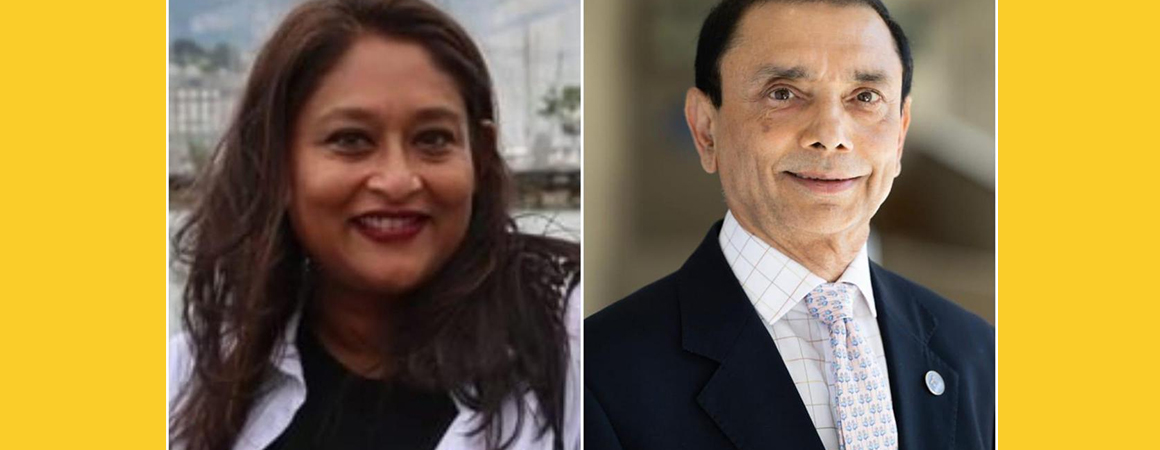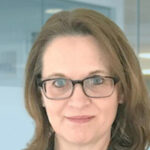Both Bangladesh and Nepal have put up candidates for the WHO South East Asian region Director’s election in October
India faces a tough choice as close neighbours Nepal and Bangladesh have both decided to nominate candidates to contest the post for the World Health Organization’s (WHO) regional Director, for an election which will also come up for discussion on the sidelines of the G-20 summit this weekend.
The candidates include Bangladesh PM Sheikh Hasina’s daughter Saima Wazed, who is going head-to-head with one of the WHO’s senior-most officials, Shambhu Prasad Acharya, who is from Nepal. The election for the WHO South East Asia Regional Office (SEARO) Director will be held in New Delhi during a closed-door SEARO session (October 30-November 2), and the winner will be declared based on the majority of votes from 11 members — Bangladesh, Bhutan, North Korea, India, Indonesia, the Maldives, Myanmar, Nepal, Sri Lanka, Thailand, and Timor-Leste. India’s Poonam Khetrapal Singh has held the SEARO Director’s post since 2014.
When asked about India’s position, government officials said that there was “still some time” before a decision would be made on whether to support Ms. Wazed or Mr. Acharya for the WHO SEARO Director’s post, but indicated that the Bangladesh candidate had an “edge”, given the importance of the India-Bangladesh relationship, as well as Prime Minister Hasina’s backing for the candidate. However, officials conceded that like any election within the UN system, much will depend on each SEARO member country’s negotiations with Bangladesh and Nepal, as they work on a system of reciprocity, in return garnering support on some other UN vote for themselves.
While Mr. Acharya, who is currently the Director, Country Strategy and Support for WHO Director-General Tedros Ghebreyesus and based at the WHO’s Geneva headquarters, is seen as an insider with considerable experience in the role, Ms. Wazed, who is a psychologist by training and an advisor to the Bangladesh Government, is running a high-powered diplomatic campaign, and sources said she will accompany Ms. Hasina on her visit to Delhi, where Bangladesh is among the G-20 special invitees. Meanwhile, Mr. Ghebreyesus will also be in Delhi for the event, along with a big WHO delegation, who are understood to favour their colleague Mr. Acharya for the role, and both sides are expected to actively campaign with SEARO members, as well as with those countries who have influence in the region.
On Wednesday, Ms. Wazed, whose official title is Chairperson of Bangladesh’s National Advisory Committee on Autism and Neurodevelopmental Disorders, accompanied Bangladesh’s Mohammed Shahabuddin to the ASEAN summit and met with Indonesian Foreign Minister Retno Marsudi in Jakarta, and is also expected to canvass for the support of other ASEAN members Myanmar, Thailand and Timor-Leste while there.
“The bilateral discussions between Bangladesh and Indonesia were constructive, and we look forward to greater ties & cooperation between our two nations,” Ms. Wazed said in a social media post. Prior to this, Ms. Wazed accompanied her mother to the BRICS summit in South Africa in August, where Bangladesh was an invitee, and met with Chinese President Xi Jinping during a bilateral meeting in Johannesburg.
Meanwhile, the Nepali government has also activated its campaign, albeit one that isn’t as high-profile, and held a meeting of SEARO member Ambassadors in Kathmandu last week. At the meeting, diplomatic sources said Mr. Acharya made a presentation and asked for the support of all members on the basis of his career as a public health official, including his positions at the WHO where he served in Dhaka (1992-1997) and Delhi (1997-1999), and at the head office in Geneva for the past 24 years. The Nepali government has also activated others within the UN system for support in what is being seen as an unequal battle given Bangladesh’s position in the region as well as the particular push from its highest office.
“[We] trust the merit system will prevail and the best fit candidates will be chosen by the member states,” wrote former World Food Programme Director in India Bishow Parajuli on social media site X (formerly Twitter), who is also a Nepali official who served with the WFP and UNDP, adding that Mr. Acharya’s experience in the WHO and public health field “speaks for itself”.
Sheikh Hasina’s daughter, Nepal WHO veteran vie for India’s vote
Both Bangladesh and Nepal have put up candidates for the WHO South East Asian region Director’s election in October
India faces a tough choice as close neighbours Nepal and Bangladesh have both decided to nominate candidates to contest the post for the World Health Organization’s (WHO) regional Director, for an election which will also come up for discussion on the sidelines of the G-20 summit this weekend.
The candidates include Bangladesh PM Sheikh Hasina’s daughter Saima Wazed, who is going head-to-head with one of the WHO’s senior-most officials, Shambhu Prasad Acharya, who is from Nepal. The election for the WHO South East Asia Regional Office (SEARO) Director will be held in New Delhi during a closed-door SEARO session (October 30-November 2), and the winner will be declared based on the majority of votes from 11 members — Bangladesh, Bhutan, North Korea, India, Indonesia, the Maldives, Myanmar, Nepal, Sri Lanka, Thailand, and Timor-Leste. India’s Poonam Khetrapal Singh has held the SEARO Director’s post since 2014.
When asked about India’s position, government officials said that there was “still some time” before a decision would be made on whether to support Ms. Wazed or Mr. Acharya for the WHO SEARO Director’s post, but indicated that the Bangladesh candidate had an “edge”, given the importance of the India-Bangladesh relationship, as well as Prime Minister Hasina’s backing for the candidate. However, officials conceded that like any election within the UN system, much will depend on each SEARO member country’s negotiations with Bangladesh and Nepal, as they work on a system of reciprocity, in return garnering support on some other UN vote for themselves.
While Mr. Acharya, who is currently the Director, Country Strategy and Support for WHO Director-General Tedros Ghebreyesus and based at the WHO’s Geneva headquarters, is seen as an insider with considerable experience in the role, Ms. Wazed, who is a psychologist by training and an advisor to the Bangladesh Government, is running a high-powered diplomatic campaign, and sources said she will accompany Ms. Hasina on her visit to Delhi, where Bangladesh is among the G-20 special invitees. Meanwhile, Mr. Ghebreyesus will also be in Delhi for the event, along with a big WHO delegation, who are understood to favour their colleague Mr. Acharya for the role, and both sides are expected to actively campaign with SEARO members, as well as with those countries who have influence in the region.
On Wednesday, Ms. Wazed, whose official title is Chairperson of Bangladesh’s National Advisory Committee on Autism and Neurodevelopmental Disorders, accompanied Bangladesh’s Mohammed Shahabuddin to the ASEAN summit and met with Indonesian Foreign Minister Retno Marsudi in Jakarta, and is also expected to canvass for the support of other ASEAN members Myanmar, Thailand and Timor-Leste while there.
“The bilateral discussions between Bangladesh and Indonesia were constructive, and we look forward to greater ties & cooperation between our two nations,” Ms. Wazed said in a social media post. Prior to this, Ms. Wazed accompanied her mother to the BRICS summit in South Africa in August, where Bangladesh was an invitee, and met with Chinese President Xi Jinping during a bilateral meeting in Johannesburg.
Meanwhile, the Nepali government has also activated its campaign, albeit one that isn’t as high-profile, and held a meeting of SEARO member Ambassadors in Kathmandu last week. At the meeting, diplomatic sources said Mr. Acharya made a presentation and asked for the support of all members on the basis of his career as a public health official, including his positions at the WHO where he served in Dhaka (1992-1997) and Delhi (1997-1999), and at the head office in Geneva for the past 24 years. The Nepali government has also activated others within the UN system for support in what is being seen as an unequal battle given Bangladesh’s position in the region as well as the particular push from its highest office.
“[We] trust the merit system will prevail and the best fit candidates will be chosen by the member states,” wrote former World Food Programme Director in India Bishow Parajuli on social media site X (formerly Twitter), who is also a Nepali official who served with the WFP and UNDP, adding that Mr. Acharya’s experience in the WHO and public health field “speaks for itself”.






NO COMMENT